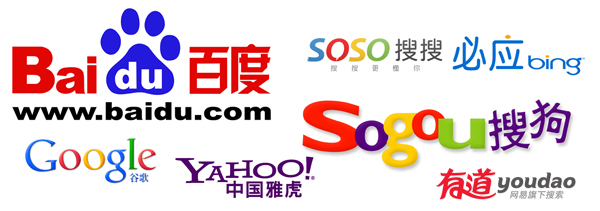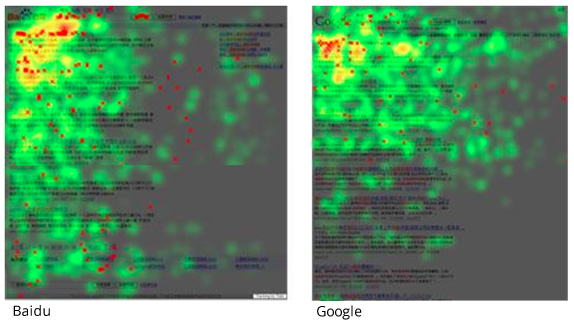Search engines China

/ > As promised in previous articles, today we will talk about the Chinese search engine market and its main players, as well as a little touch on the characteristics of Chinese SEO. The basis of my research for an investment Fund, as well as experience and opinions of experts in this field.
Chinese search engines
To begin, consider the major players in this market. The last few years, the market structure is not much changed, we can say that the market is divided between "monopoly" Baidu, which occupies two-thirds of the "pie", and everyone else. By 2013, the situation is as follows:
the
-
the
- Baidu.com (百度) with a share from 65% to 80%, the
- So.com (360搜索) — 16-17% the
- Sogou.com (搜狗) — 9-10% the
- Soso.com (搜搜) is 3-3,5% the
- Google.cn (谷歌) — 2-3% the
- Bing.cn (必应) — 0.4-0.5% the
- Yahoo.cn (中国雅虎) — 0.2-0.4% the
- Youdao.com (有道) — 0.2%
Youdao
Small search engine from a major Internet portal NetEase (网易, 163.com). Started as an online dictionary with offline versions for PC and phones. I personally didn't see the living people who use this search engine, but the box on 163.com was at the time, for many Chinese the first email. Now NetEase is still known for its online games. Most likely the traffic is from these key areas. Previously, Youdao has partnered with Google, until the latter was thrown from the Chinese market. Now partner was Qihoo.com but on the share Youdao it is not affected.
Yahoo.cn
The Long-Suffering Yahoo. It all started with the attempts to become a media portal, but until 2013 I lived only search (recently was disabled mail and service music). As you know, the strategic partners listed Alibaba. In this particular active action by the Alibaba Group on its promotion are not observed. But who knows, maybe a "black horse"? Think, if you want MA Yun1 can get Yahoo, at least in the Top 5.
Bing.cn
Relatively young for the Chinese market search engine, behind which is Microsoft. However, even the existence of such support has not given Bing a shot. Quality search in the Chinese is disgusting. Even the local representatives of the company declare that Bing has a chance to occupy a narrow niche of the English search for Chinese user (alluding to the fact that Baidu in English looking for bad). However, some experts say that Microsoft has the leverage to quickly change the situation by advancing the search through their products (e.g. using Internet Explorer).
Google.cn

About Google conflict with the Chinese authorities, and its subsequent collapse is said and written a lot. The search engine continues to lose its share in the Chinese market. According to my fellow experts, now Google in China are: a) "geeks" and people working in international trade; b) for placement of advertising on adwords/adsense and attracting foreign customers; C) the portion of the users of Android (market share of mobile search — 7.5%).
Corrected the situation in the near future? Hard to say, but I its customers not recommend looking on Google for promotion on the Chinese Internet.
Soso.com
Search engine from Internet giant Tencent (腾讯), Creator of the popular instant messenger QQ and WeChat (微信), the social network QQ Zone, QQ Games, and many other projects. With these products comes the main traffic. Prior to 2009 used the Google search technology, now mention of this anywhere removed. Mobile search is on the second place (14-15%).
Sogou.com
The third most popular search engine in China. It is owned by a major Internet portal Sohu (搜狐), it also invested the aforementioned MA Yun (has a 16% stake). Quickly gained its share over food Sohu, including: Sogou Input (搜狗输入法) — smart entry system of hieroglyphics, and a secure web browser based on Chrome and IE. But the most interesting that recently confirmed rumors about the purchase of Sogou Qihoo, owner of the "engine No. 2".
So.com
And here is the proof that even a monopolized market of search engines, how Chinese can to burst with ingenuity and a "little bit" of money. And although the company is surrounded by numerous scandals about the "evil" game with competitors and investors, the winners are not judged. Their search engine So.com entered the arena in 2012 and he now owns 17% of the market. How did this happen?
The founder of the search engine Qihoo 360 (奇虎360) — software developer, known for its antivirus products, mobile app store and numerous apps. But most importantly, they are aimed at an audience of millions of owners of pirated copies of Windows in China. The program "360" allows you to install OS updates, bypassing authentication and making the computer relatively safe replacing IE6 on your Safe Browser. Naturally, these add-ins page, by default, became the site Qihoo, and with it the home search. It is not surprising that 80% of search traffic coming from Qihoo apps (browser toolbar), and only 20% directly from the site so.com and other channels.
Now Qihoo continues to grow, has partnered with Google and Nokia in mobile search and are planning to enter the markets of other countries (a few months ago there was an active hiring of foreign employees in the company). And after buying rival Sogou, we can expect share growth in China for another 8-10%.
Baidu.com
And finally, the main dish Baidu.com. According to various estimates they are from 65 to 80% of Internet users in China. History and description of all web services the company deserves a separate article. So, only to find they have more than a dozen products (and their projects in Japan and Indonesia). And will not be a big mistake to say that the whole "Chinese SEO" is centered on the Canoe. Therefore, I propose to complete the description of the players and start telling you about the features of search engine optimization in China.
SEO in China: the index in the Canoe
A few tips for a quick hit of site in the index.
Make sure you brand
the
-
the
- made a website with a competent Chinese language (English sites is also indexed, but much worse). There robots.txt and everything is fine (list the address for the Sitemap). the
- Offer a site for indexing here. the
- Get an account in Baidu and register your site at Baidu Zhanzhang (similar to Google Webmaster or Yandex.Webmaster), confirm the right to possession and submit XML Sitemap in the Sitemap page (not to be confused with section 死链提交 is a map of dead links for removal from the index). the
- please Be patient, indexing can take anywhere from 2 to 4 weeks.
And now the details:
In previous articles already commented that Shit on the order of less index sites located on foreign servers. The official position is this: the Baidu index, and then ranks sites according to many parameters, including the speed of response of the server. And for many not a secret that in China for foreign traffic is allocated a small canal. So if you want to get into the index faster and to be higher — transfer site in China, or at least to Hong Kong.
Get ICP license for the site. Official: its presence does not affect the indexing. But in practice, ICP Baidu faster helps to solve a good site or bad (if approved by the government = good), and puts it faster/higher.
Positioning and ranking in Baidu
In short we can say that as with other search engines, there are many options: the uniqueness and quality of content, number of external links and the ranking of referring sites, the "density" of key words and so on. Perhaps only with the density of the matter here is somewhat freer: if Google/Yandex for a large number of keywords on the "centimeter" text to "banhammerom", Baidu looks at it easier. But the most important role in ranking plays link-building, and the number of external links.
It is worth noting that SEM and paid advertising on Baidu (Baidu PPC, 百度推广) does not affect the indexing/positioning. But because Baidu has no conscience and advertising space are on top of issue, bottom, side, and in the middle (more recently, they almost did not differ from the usual results, but now they have a different background), then this point is very important not to miss. You can invest in SEO hundreds of thousands of yuan to be on the first "organic" place, but this will be the fifth (and most recently tenth) place on top of the paid results. Some experts say that 80% of users don't know what is paid results. And those who know, inertia is clicked in the middle or at the bottom of the results. But there it was even lower results can buy.
If we compare the "heat map" (heat map) of the results pages of Google and Baidu, we can see that Google actively clicked on the first three lines. In the Canoe as a large number of clicks smeared on the center and bottom lines.

in General for a long time Baidu has developed a reputation on the one hand the active Pro-government censor, on the other monopolist in the search, whose results are sold by more than half. Now for this reason resent mostly "geeks", but also among ordinary Internet users begins to grow discontent. Baidu is trying to slowly correct the reputation, but your competitors never miss a chance once this fact is to play.
***
Here, perhaps, stop and leave space for the second part about SEO and SEM in China (hub is off topic). We welcome your comments, additions and questions that will be answered in the next part.
notes
MA Yun (马云, Jack Ma) — founder of the Chinese ecommerce giant Alibaba.com, Taobao, Tmall, Alipay and many other projects.